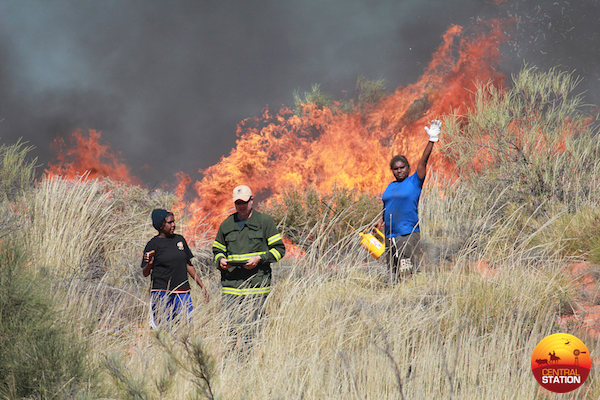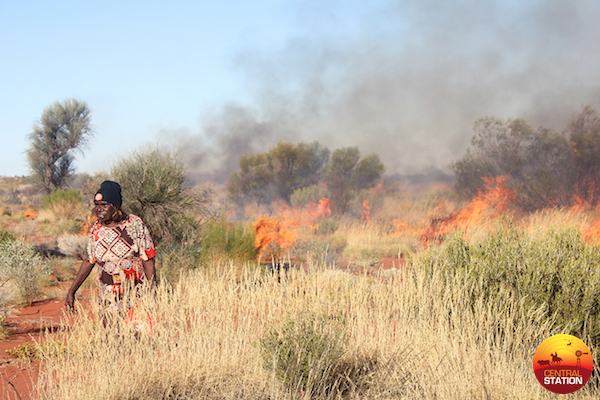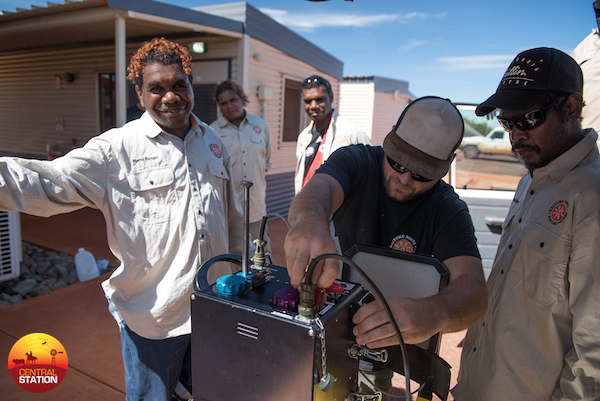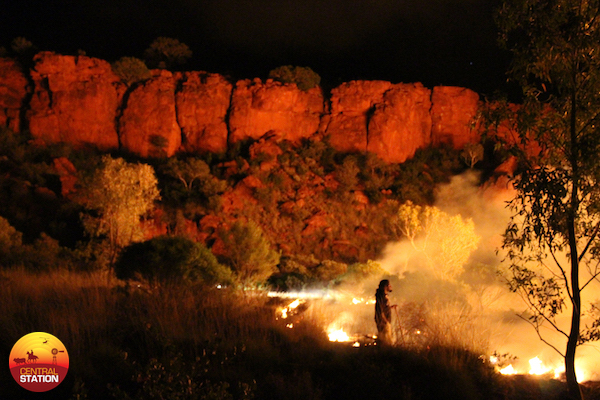Working together on fire on the Pilbara Pastoral / Desert Interface – Part 1
Host: Rangeland Natural Resource Management
Written by Chris Curnow – Program Manager (Desert and Pilbara), Rangelands NRM.
There’s some movement on the boundary of the pastoral and desert country in the East Pilbara. Martu Rangers are preparing for burning, now with the added element of urgency given the recent rains bringing new growth right across the desert. But this year they are preparing to do it in collaboration with their pastoral neighbours.
I’ve been working with Gareth Catt, the Fire Coordinator for Kanyirninpa Jukurrpa (affectionately known as KJ), a Martu organisation based in Newman who help Martu, in making contact with pastoralists on the edge of the Pilbara pastoral zone. Gareth works with Martu, who maintain their practice of looking after Country right way. In early March at the Pastoral Profits workshop held in Newman, Gareth and I caught up with the new pastoral managers for Warrawagine and Balfour Downs stations. Gareth presented the Martu case and their desire to introduce much needed prescribed fires into that country on their shared boundary. Both stations welcomed the idea of collaborating around fire along their desert boundaries.
A few weeks before this, Gareth and I also caught up with the pastoral manager for the Eastern Guruma Pastoral Company who are sub-leasing Walagunya, just to the north of Jigalong. Eastern Guruma are also excited to hear of Martu plans to work on improving fire regimes along their shared boundary. With the pastoralists now aware of Martu’s intention to burn in that boundary country, the next step will be the coming together of all parties to agree on the 2017 burn plans and to agree on the extent to which resources will be shared and/or committed.
For many pastoralists, fire coming out of the desert has historically been seen as a risk to their pastoral enterprises; a risk they perhaps accepted that they just had to wear. With the prospect of Martu and neighbouring pastoralists talking and working together, we hope new opportunities for understanding will be created and a way for these ‘neighbours’, with huge landscapes at their doorsteps, to work together. We also hope that pastoral managers and Martu Traditional Owners can collectively achieve their respective aims in this pastoral/desert interface: that being to reduce the frequency of large destructive wildfires; something that both pastoralists and Martu believe is bad for country. Doing smaller prescribed burns along the boundaries between Martu Lands and the pastoral country will help both sides move towards achieving this ultimate objective. This is what everybody agrees is good fire, with the long-term view of creating a diverse mix of vegetation age classes; being a mosaic of country with different ages of vegetation since the last fire came through.
Martu want to ensure their traditional country is looked after in the right way – like the ways of the pujiman (the bushmen and women) during pujiman days, when Martu lived entirely traditional desert lives. In 2002 Martu were awarded exclusive Native Title rights of their traditional lands – 13.6 million hectares. Most Martu live in Jigalong, as well as in the more remote communities of Parnngurr, Punmu, and Kunawarritji. The Martu rangers do a lot of work looking after their vast country.
Working towards this vision of a finer-grained fire mosaic across the massive landscapes of the Eastern Pilbara and the Great Sandy Desert is a huge task. There are too few people and resources for the enormity of the job. But, like all managed fire programs across the Pilbara, Desert Country and the tropical savannahs of the North, the intention is there and rangers and pastoralists are at the fore, or rather, the fire front of this important work.
Chris Curnow
Program Manager (Desert & Pilbara)
Rangelands NRM




